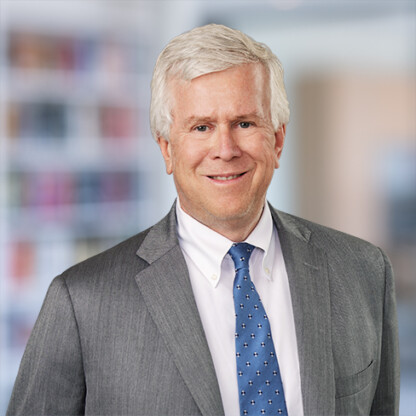Foley Lawyers File Supreme Court Amicus Brief to Vindicate Right of Corporate Free Speech
On September 9, 2009, the U.S. Supreme Court will hear additional oral argument in a First Amendment challenge to federal campaign finance laws. When it does, the record before the Court will include a July 31, 2009, amicus brief filed by Foley & Lardner LLP. Foley made the filing on behalf of two Section 501(c)(4) nonprofit organizations seeking to vindicate the constitutional principle that corporations have the same First Amendment right to free speech as individuals.
The case, Citizens United v. Federal Election Commission, Docket 08-205, involves application of the Bipartisan Campaign Reform Act of 2002 (BCRA, a/k/a McCain-Feingold). The Citizens United case began as a challenge to a ruling by the Federal Election Commission (FEC) that BCRA prohibited a Virginia-based citizens group from advertising a documentary film entitled, “Hillary: The Movie.” The documentary about Senator Hillary Clinton was intended to be shown in theaters and on-demand to cable subscribers. The FEC, however, deemed it to be an “electioneering communication” that was prohibited by BCRA.
The Supreme Court previously heard oral argument in the case on March 24, 2009. At that time, the government argued that the First Amendment allows the government to ban or limit the distribution of the movie not only via video-on-demand on cable — but also on the Internet, on a DVD, at a public library, or in a book. As authority for its position, the government cited two prior decisions of the Supreme Court: the 1990 decision in Austin v. Mich. State Chamber of Commerce, 494 U.S. 652 (1990) and the 2003 decision in McConnell v. Federal Election Comm’n, 540 U.S. 93 (2003). Thereafter, the Supreme Court ordered supplemental briefing of the question whether its prior decisions in Austin and McConnell should be reversed. The Court also took the somewhat unusual step of scheduling oral argument on this specific question on September 9, 2009, in advance of the Court’s October term.
Foley’s July 31, 2009, filing was submitted on behalf of long-time Foley clients American Justice Partnership (AJP) and Let Freedom Ring (LFR) as amici curiae in support of the position of the appellant, Citizens United. Both AJP and LFR are nonprofit corporations devoted to public policy issues. They argue that Austin and McConnell should be reversed because these decisions have allowed 22 state statutes (the Offending State Statutes) to impose restrictions on corporate free speech that violate the First Amendment and allow only one side of important public policy debates to be heard.
The mission of AJP (www.americanjusticepartnership.org), according to the amicus brief, is “to educate citizens, public officials, and candidates of the dangers to states’ economic well-being resulting from runaway litigation and excessive damage awards.” Because AJP is funded by corporate contributions, the Offending State Statutes would subject AJP to “severe civil — and in some states and circumstances — criminal sanctions if it were even to mention specific political candidates who support (or oppose) its legal reform agenda.” In contrast, AJP’s philosophical opponents — “trial lawyers (some of whom have amassed a net worth of millions of dollars) and associations of trial lawyers” — “are free during an election year in any state to criticize by name candidates for public office at the state level who support caps on punitive damages and other aspects of tort reform.”
LFR (www.letfreedomringusa.com), according to the amicus brief, was “formed for the express purpose of mobilizing citizens on issues regarding protection of fundamental American values and free enterprise, and educating voters about candidates’ views and votes on its priority issues.” Unlike AJP, LFR forgoes corporate contributions and membership altogether in an effort to avoid being silenced by the Offending State Statutes. As stated in the amicus brief: “LFR cannot even hold meetings at a church, synagogue, or mosque without paying for use of the facility out of fear that otherwise it might be deemed to have accepted an ‘in-kind’ corporate contribution.”
The amicus brief filed by Foley on behalf of AJP and LFR was one of at least twenty filed on behalf of various organizations representing business (such as the U.S. Chamber of Commerce), labor unions (such as the AFL-CIO), and civil rights groups (such as the American Civil Liberties Union, the Free Speech Defense & Education Fund, and the Reporters Committee for Freedom of the Press). Representing AJP and LFR in the Supreme Court are three Foley attorneys resident in the Washington, D.C. office: Cleta Mitchell, a partner in the Political Law practice of the Government & Public Policy Department; Michael J. Lockerby, a partner in firm’s Appellate Practice, who also serves as Chair of the Washington Office Litigation Department; and Andrew D. Morton, an associate in the Government & Public Policy Department.
Please click on the “View PDF” below to view the complete brief.
Contacts:
|
Michael J. Lockerby |
Cleta Mitchell |
